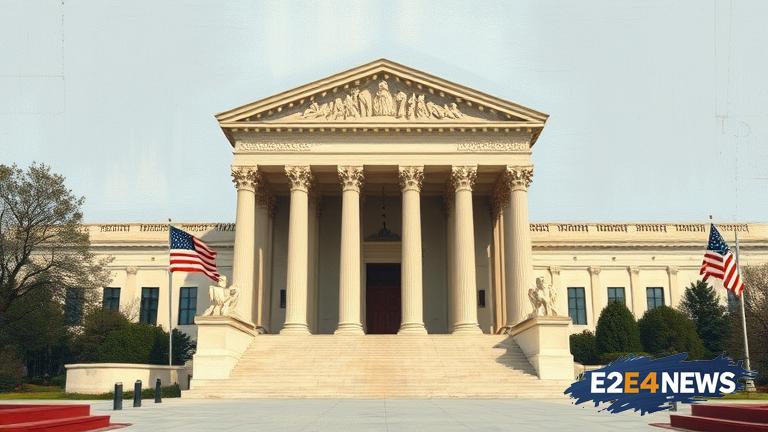The Supreme Court, once considered an apolitical institution, has become a focal point of partisan tensions in the United States. A recent survey has found that Americans’ support for the Supreme Court is increasingly divided along party lines. This phenomenon is a reflection of the country’s broader political polarization, where individuals are more likely to identify with a particular party and its ideology. The survey’s findings suggest that Democrats and Republicans have fundamentally different views on the Court’s role and its decisions. While Democrats tend to view the Court as a champion of social justice and individual rights, Republicans see it as a guardian of constitutional principles and limited government. The partisan divide is also evident in the public’s perception of the Court’s legitimacy, with Democrats more likely to question its authority and Republicans more likely to defend it. The survey’s results are consistent with other studies that have shown a decline in public trust in institutions, including the Supreme Court. The polarization of Supreme Court support is also reflected in the confirmation process for new justices, which has become increasingly contentious and partisan. The survey’s findings have significant implications for the Court’s ability to function as a neutral arbiter of the law, as well as for the health of American democracy. The deepening partisan divide threatens to undermine the Court’s legitimacy and erode public trust in the institution. Furthermore, the survey’s results suggest that the Court’s decisions are often seen through a partisan lens, with individuals more likely to support or oppose a decision based on their party affiliation rather than the merits of the case. The partisan polarization of Supreme Court support is a symptom of a broader disease that afflicts American politics, where individuals are more likely to prioritize party loyalty over principle and ideology. The survey’s findings highlight the need for a more nuanced and informed public discourse about the Supreme Court and its role in American democracy. Ultimately, the polarization of Supreme Court support reflects a deeper crisis of faith in institutions and a decline in civic engagement and discourse. The survey’s results serve as a reminder that the health of American democracy depends on the ability of citizens to engage in constructive dialogue and to find common ground, even in the face of deepening partisan divisions. The Supreme Court, as an institution, must also take steps to address the partisan divide and to restore public trust in its legitimacy. This can be achieved through greater transparency and accountability, as well as a renewed commitment to impartiality and the rule of law.
